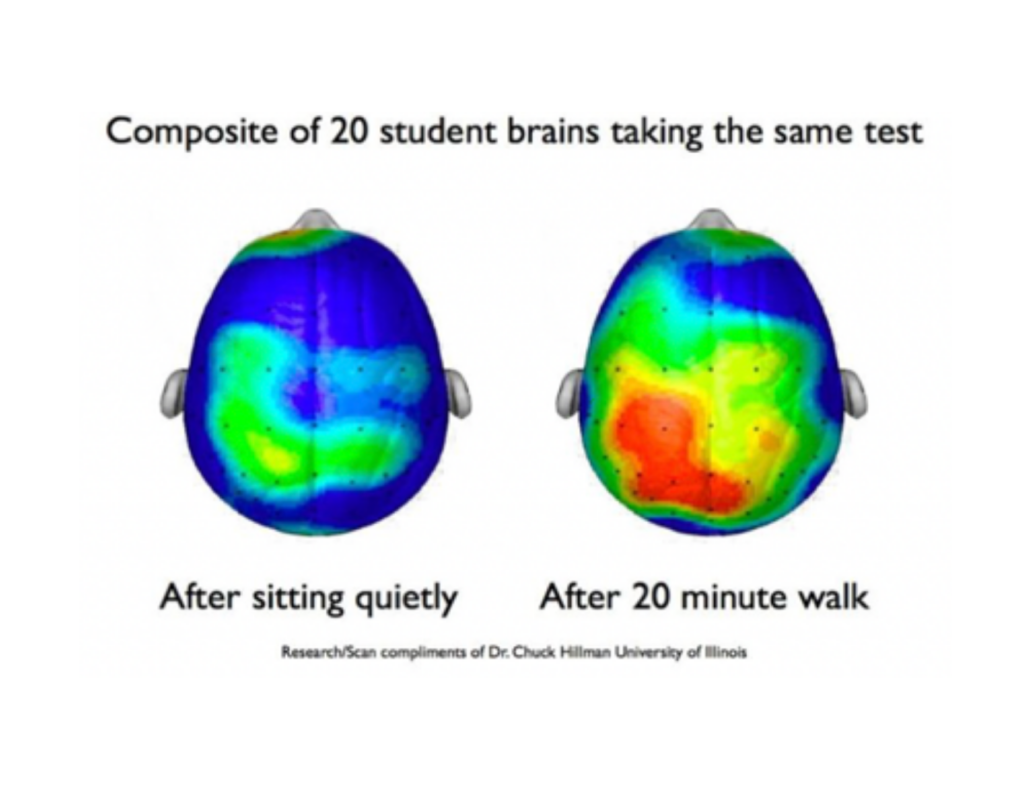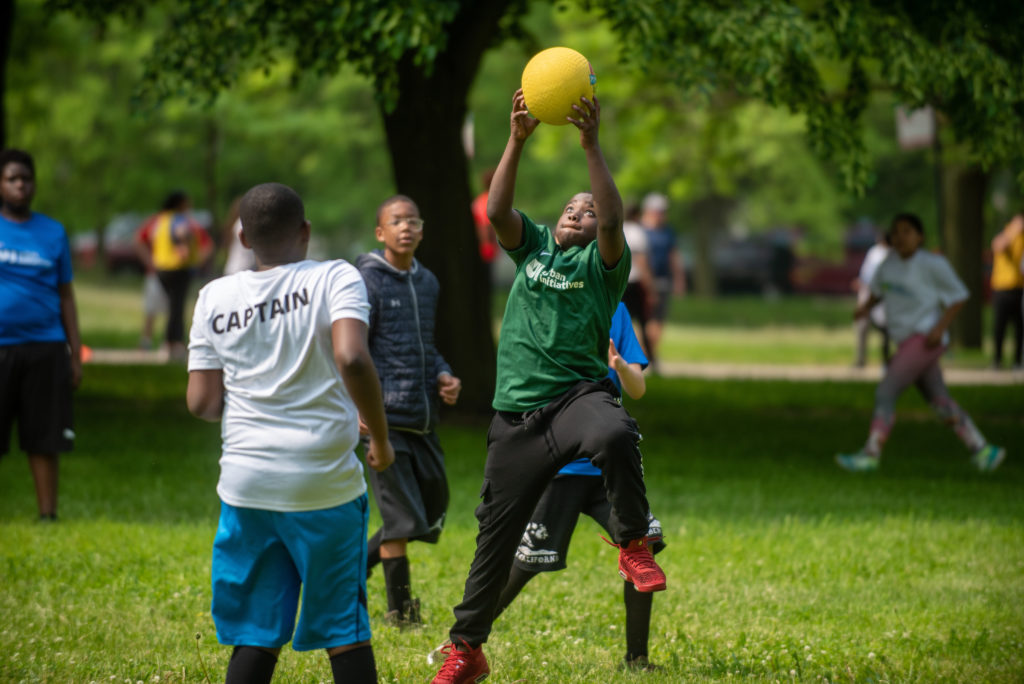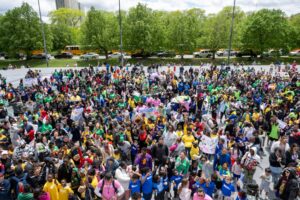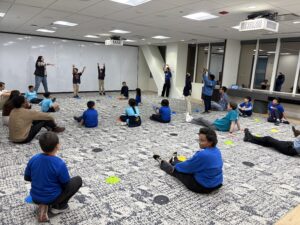See part one of this two part series about our evaluation results from the 2018-2019 school year here.
One of Urban Initiatives’ six core values as an organization is impact. We engage in data-driven decision making to achieve positive outcomes, and each year we spend a great deal of time, effort, and resources evaluating each of our programs’ impact. By intentionally evaluating each program, we can effectively determine which of our program goals are being met or exceeded and where our program models need improvement in order to best serve our participants, families, and school communities.
Our three-person Research and Evaluation team guides our evaluation strategy at Urban Initiatives, but our organization-wide data culture means that we all pitch in to help support this important effort and we are excited to continue our conversation with you, our stakeholders, about our impact with our 2018-2019 evaluation results!
Our Recess Program
Urban Initiatives’ recess program — part of our larger Culture & Climate department — is evaluated for effectiveness through pre and post test surveys of students, teachers, and principals, as well as Urban Initiatives staff member observations. Our results from last school year demonstrate the incredible power of play on school culture, social emotional learning, and student physical activity.
Recess is an important part of every school day not only because it allows students to re-energize for an afternoon of learning, but also because it provides an important portion of students’ overall recommended physical activity and it can help to create stronger, safer, and more connected school communities.
Our recess program, called Play with Potential, is doing just that. It is not only facilitating powerful recess sessions for individual students to get the break and physical activity they need to be successful in the classroom, but it is also building the foundations of strong school cultures through adult modeling of social emotional skills for more positive learning environments.

Power of Play
It has been shown that physical activity is directly linked to academic outcomes including higher GPA and standardized test scores, better concentration and memory, and improved classroom behavior.1 Physical activity during recess specifically has been associated with improvements in student attention, concentration, and on-task classroom behavior.2 Not only does play provide for enhanced academic outcomes, but it is also important for physical and social emotional well being. In fact, the CDC recommends 60 minutes of moderate to vigorous physical activity each day for youth aged 6 to 17.3 Urban Initiatives recess is 20 minutes each day, as allowed for in the CPS school day schedules, with a goal of providing 15 minutes of moderate to vigorous physical activity during each session. It is important that Urban Initiatives recess staff intentionally provide opportunities for students to make use of this time and engage in physical activity during recess. 100% of principals who responded to our survey reported that students “often or always” engaged in moderate-to-vigorous physical activity during Urban Initiatives’ recess sessions, and more than 9 in 10 students who responded to our survey (91%) said they liked to run and be active during recess.
With our recess staff facilitating high quality, engaging activities at recess, students really are utilizing their recess periods to squeeze in some exercise! Positive adults facilitating recess can have a major impact on students’ physical activity and engagement in activities during recess. At UI schools, 71% of principals reported that Urban Initiatives recess staff “often or always” created a variety of age-appropriate opportunities for play compared to just 25% of principals that didn’t have our program. Play is so important for students to stay healthy and engaged and the Urban Initiatives recess program is helping to ensure all students have a age-appropriate, productive, and active recess every day!
Improving School Cultures to Support Student Success
Play is a critical part of the school day and at schools with Urban Initiatives’ recess program, teachers agree. Compared to teachers in their first year of Urban Initiatives’ recess program teachers with multiple years of our programming were more likely to value students’ opportunities for play during the school day. As a school experiences our program over time, teachers come to recognize that physical activity breaks don’t take away from instructional time or likelihood for academic achievement. Teachers come to value play because of our approach to building relationships with teachers and school based staff, and the impact they see it having on their students. Our recess staff helps to build culture & climate during recess, but they also carry this goal throughout the school by leading classroom energizers and working with other staff members in the building to ensure the school is the best possible learning environment it can be. This is vital support as schools look to build cultures that support the whole student and not just their academic achievement.
In addition to teachers reporting increasingly positive attitudes towards play, we also found positive trends in emotional safety and increased social-emotional learning — important components of a positive school culture. Compared to 0% of principals at schools without our recess program, 86% of principals at schools with UI recess reported that recess staff “often or always” intentionally engaged in opportunities for social emotional learning with students. Additionally, 100% of our principals reported that students were “often or always” emotionally safe at recess, and students at schools that had our recess program previously reported increased emotional safety and inclusion at recess, which included feelings of safety, being included in lots of activities, and feeling like a part of the group.
Recess is not only providing a safe space for play and an opportunity for students to take a break from the classroom, but it is also building the social emotional skills and feelings of safety critical for a positive school culture. Recess staff are unique in their opportunity to see every child in a school every day, so they are positioned to make recess a positive culture that sets a standard for the school community at large.
——
With a staff of 60 committed youth development practitioners, our Culture and Climate team is working hard to ensure that every Urban Initiatives recess session is safe, fun, and active. By doing so, we are not only providing important opportunities for physical activity during the school day, but they are impacting our school communities culture and climate to support student success across the board. Although recess may just seem like fun and games, it’s helping to create healthier, more effective schools and having a real impact on our youth.
We are excited to share these promising results from our evaluation efforts. Our team is already back in the field, observing and measuring this year’s recess, so that we can continue to provide high quality recess facilitation in schools across our city!
—-
Have questions about our evaluation processes? Email emily.fallon@urbaninitiatives.org.
- Strong et al, 2005; Coatsworth & Conroy, 2007; Pellegrini, Huberty & Jones, 1995
- Centers for Disease Control and Prevention (CDC). (2010). The Association Between School-Based Physical Activity, Including Physical Education, and Academic Performance. Atlanta, GA: CDC.
- https://www.cdc.gov/healthyschools/physicalactivity/guidelines.htm




